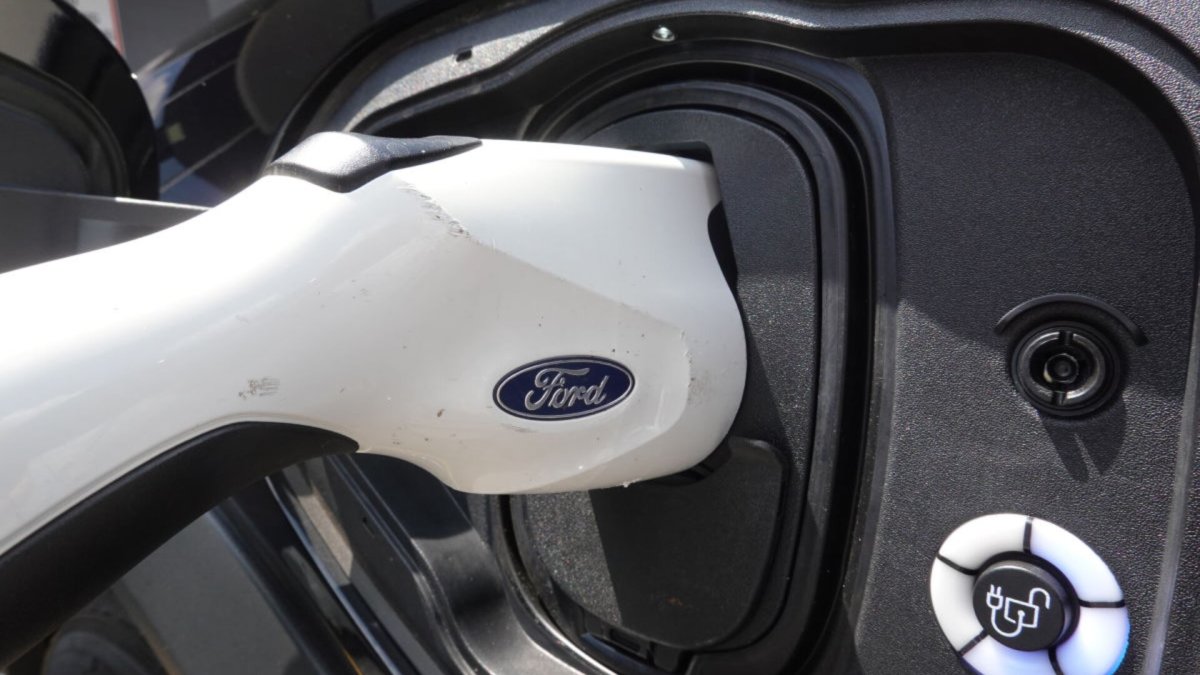U.S. electric vehicle sales have taken off in 2025 as car buyers flocked to dealers to take advantage of the $7,500 tax credit before it expires at the end of September.
U.S. EV sales rose to 9.9% of all new car sales in August, a 10% jump from the 9.1% share held in July and the highest-ever record, according to Cox Automotive data.
Market share increased despite an uptick in prices, as the average transaction price (ATP) for an EV was $57,245 in August, a 3.1% increase. The ATP for a traditional new vehicle rose just 0.5% to $49,077.
So despite being more expensive and experiencing a larger price increase, total EV sales in the U.S. reached a record of 146,332 in August.
“With government-supported EV tax credits set to expire at the end of September, current sales trends suggest Q3 2025 will set an all-time record for EV sales in the U.S.,” according to Cox Automotive.
September has been an even stronger month, according to new data.

Image source: Olson/Getty Images
September new vehicle sales jump as EV share hits new record
New vehicle sales for September are projected to rise 0.1% to 1.23 million, according to a joint forecast from J.D. Power and GlobalData.
For the year, J.D. Power’s seasonally adjusted estimate is for 16.2 million new-vehicle sales, a 300,000-vehicle increase year over year.
Related: EV car makers get a positive update from beleaguered supplier
Much of that increase has been driven by electric vehicles that are on pace to exceed 12% market share, a 2.6% year-over-year increase, in the U.S. for the first time.
“The biggest driver of September’s strong sales pace is temporarily inflated demand for electric vehicles. The federal EV tax credit expires at the end of the month, which is causing many shoppers to accelerate their purchase,” Thomas King, president of the data analytics division at J.D. Power, said.
On a volume basis, EV sales jumped 27.5% year over year.
Internal combustion engine vehicles are projected to account for 71.7% of new-vehicle retail sales, a nearly 5% decrease. Hybrid electric vehicles will account for another 12.4% of sales.
The U.S. EV market is losing government backing
While U.S. EV sales are reaching record highs, the government backing that is undergirding that growth is set to expire soon.
President Joe Biden and his Democrat predecessor saw climate change as an existential crisis and electric vehicles as a key to combating that crisis. President Obama initiated the $7,500 EV tax rebate during his term, and President Biden expanded the program during his.
Related: Stellantis debuts new EV battery design that could change everything
While it hasn’t been a big subject for President Trump this time around, he did call some of the rhetoric around climate change a hoax when he first ran for president back in 2015.
The Inflation Reduction Act, signed by Trump’s predecessor, President Joe Biden, initially offered the tax credit through 2032.
But in July, President Trump signed the One Big, Beautiful Bill that ends the credit in days.
Ford, GM could use an EV sales boost
Model e, Ford’s electric vehicle segment, has been bleeding billions of dollars for years.
It lost $5.1 billion in 2024 after losing $4.7 billion the year prior. Ford expects Model e losses to increase to $5.5 billion in 2025.
Earlier this year, GM CFO Paul Jacobson said GM plans to narrow its EV losses by about $2 billion this year if it continues to see EV sales growth.
Ford reports its quarterly results on October 27, while GM is scheduled for October 20 after market close.
U.S. EV sales are climbing, but America is a distant third behind China and Europe in terms of EV sales.
Related: Tesla could be left out of the US EV revolution
#Ford #auto #sales #helped #latest #carbuying #trend